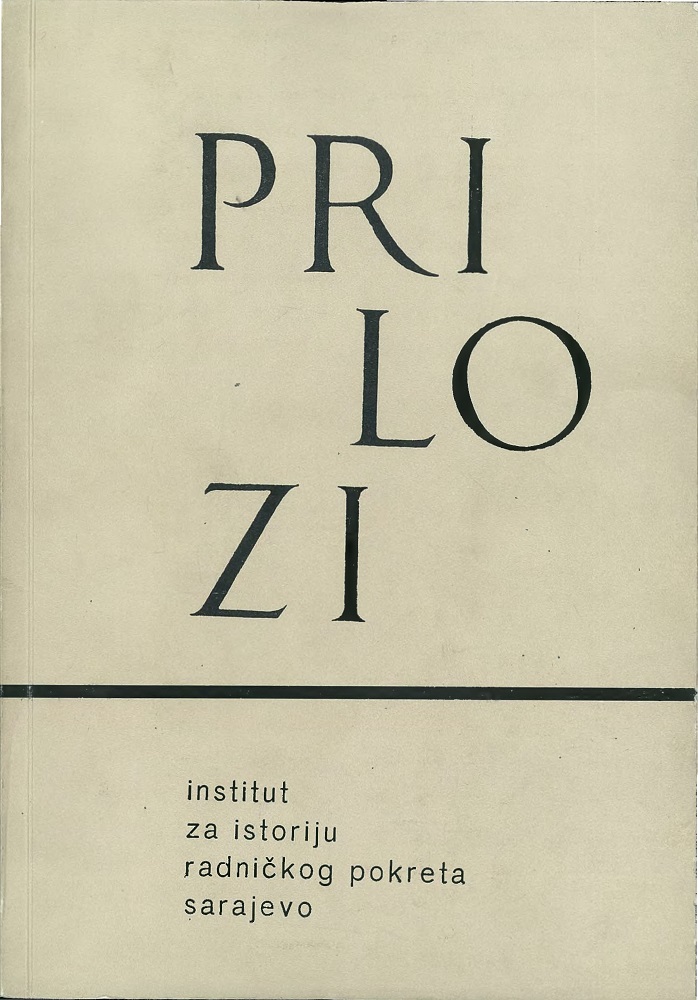BOSNA I HERCEGOVINA U KONCEPCIJAMA GRAĐANSKIH POLITIČKIH SNAGA I KOMUNISTIČKE PARTIJE JUGOSLAVIJE DO 1941. GODINE
BOSNIA AND HERZEGOVINA IN THE CONCEPTIONS OF CIVIL POLITICAL FORCES AND COMMUNIST PARTY OF YUGOSLAVIA UNTIL 1941.
Author(s): Nikola BabićSubject(s): Civil Society, Political history, Social history, Government/Political systems, WW II and following years (1940 - 1949), History of Communism
Published by: Institut za istoriju
Keywords: Civil political forces; Communist party; Yugoslavia; 1941;
Summary/Abstract: From the breaking out of modern national movements in Yugoslavia up to the Liberation War and the Yugoslav Peoples’ Revolution of 1941—1945, the national problem became the most significant component in the socio-political life of the middle-class, and later on, of the labour-class political organizations. In the framework of this problem, an,d especially within the framework of the Serbo Croatian relations, the question of national character and national membership of Bosnia and Herzegovina to. Serbia or Croatia was always present. Side by side with this, the idea of their autonomy existed as well. That idea had been born still during the Turkish rule, then in the period of Austro-Hungarian domination it was propagated in various ways, and, at last, side by side with the hegemonistic aspirations of Serbian and Croatian bourgeoisie in their fight for Bosnia and Herzegovina, it was transmitted into the political life of the Kingdom of Yugoslavia. These phenomena in the political life of Bosnia and Herzegovina appeared on the basis of the national mixture of the three national, i. e. three etnic groups of peoples — Serbs, Moslems and Croats, and as a reflection of deep historical relations, come into being throughout the long period of the foreign rule and Ihe increased nationalisms in the course of the development of the middle-class society.
Journal: Prilozi
- Issue Year: 1967
- Issue No: 3
- Page Range: 7-45
- Page Count: 39
- Language: Bosnian

